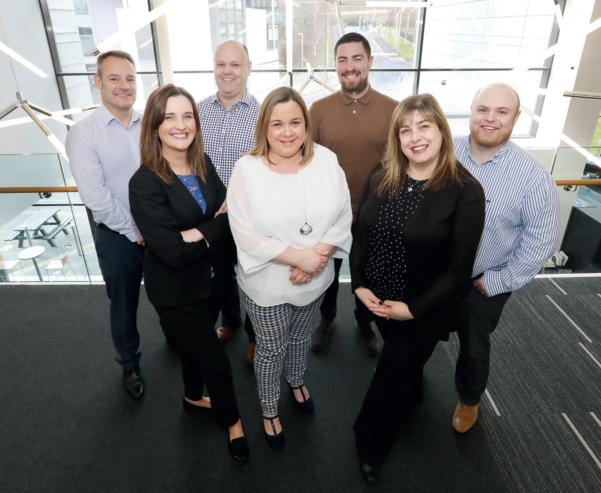Columnist Mark Owens Managing Director (Northern Ireland), Civica
NI Should be at the Forefront of Digital Transformation in Public Services
I
n 2017, the Northern Ireland (NI) Executive launched Making Lives Better, a strategy to help deliver more modernised public services through better use of technology, work processes and investment in people. At the time, no one could have imagined that this new approach would be put to the ultimate test within only three years. Nevertheless, over the past 12 months, we’ve seen a radical shift towards digital tech, as our vital public services have supported us through the pandemic. People of all ages across NI, from children to senior citizens, have embraced digital technologies to keep life moving forward. As a community, we’ve moved from offices to home working, from classrooms to home schooling and kept in touch with loved ones via video call for well over a year. Now, as we emerge from the darkest days of the pandemic, citizens and communities of all ages and backgrounds have a newfound appreciation for, and very different expectations from, digital public services. According to Civica’s latest ‘A Word from the Wise’ research, over two-thirds of citizens over the age of 70 in NI recognise the role technology has in helping elderly or vulnerable adults live independently for longer. Nearly three quarters feel confident that they would be able to use devices such as iPads, smartphones, and wearables to improve their health, safety and wellbeing. In other words, one of the biggest barriers to the digitalisation of our public services - digital literacy - has effectively disappeared over the past year. For the Northern Ireland Executive and local councils, this means we now have a unique opportunity to accelerate the delivery of more digitally enabled, streamlined and personalised public services.
70% of all citizen transactions with government via digital channels by 2019. By 2024, all citizens in Northern Ireland will have a single ‘digital care record’ that will replace the outdated patchwork of digital and paper systems used at the moment, providing easier, more tailored access to medical care. As we begin to return to some semblance of normality, the Executive and local councils have a unique opportunity to expedite the digital roadmap for NI so we can become a true world-class digital economy. The public sector must work with the private sector to harness the tried, tested and trusted technological solutions which already exist to meet the demand from citizens to provide more digital services. Data is the catalyst Data is critical to this. The NI Executive and our other public bodies already have access to a wealth of data. But raw data sitting on spreadsheets and hard drives across various departments is of little value. Unlocking the true value of data depends on how we collect, manage and use it. The Executive has launched the Open Data Strategy for Northern Ireland 2020–2023 to drive a transparency agenda across government and create a resource which will improve the economy and lives of people in NI. With more availability of data, organisations from both the private and public sector can generate better insights to improve decision making. The availability of this information will help public bodies develop robust services that deliver maximum value for citizens and communities. NI led the way on embracing digital tech to support people and business during the pandemic. For this, we should feel pride, but also a sense of ambition for what the future could hold. If digital technologies can keep vital public services running during a global pandemic, imagine what they could do during less challenging times.
Building on a solid foundation The pandemic laid bare the key role of digital technologies in maintaining our vital public services, from healthcare to education, during times of crisis. The pandemic may have been a catalyst for an increase in technology adoption, but NI has been at the forefront of digital transformation for years. Back in 2016, the government launched the Northern Ireland Digital Transformation programme which aimed to increase the number of government services accessible online and deliver
We have a unique opportunity to fundamentally transform the relationship between citizens and the vital public services they depend upon to live their lives. Let’s embrace that opportunity with both hands and build a better future.
89
PAGE89.indd 2
05/07/2021 15:05


























